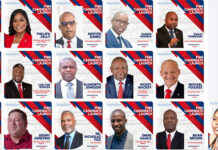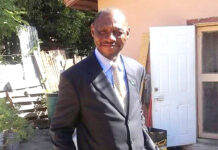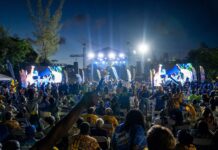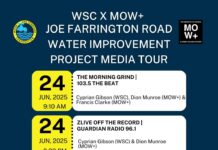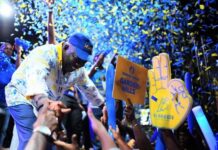By Alpheus Finlayson
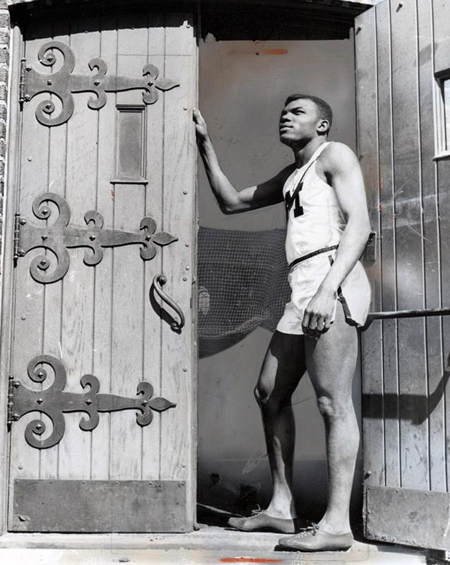
Nassau, Bahamas – Bahamian National Hero Thomas Augustus Robinson was one of the premier Bahamian athletes of the twentieth century.
On Sunday morning, November 25th, 2012 the great Bahamian died after an illness of stomach cancer.
Robinson, who attended St. John’s College in Nassau and the University of Michigan in the United States, was born on March 16th, 1938.
He graduated from St. John’s College in Nassau in December of 1953 and was employed at the Bahamas Electricity Corporation in January, 1954. He worked at the Customs Department from late 1954 to September 1957.
On Friday, November 23rd, 2012, Robinson celebrated fifty-six years since he became the first Bahamian to participate in track & field in the Olympic Games. On that day in 1956 in Melbourne, Australia, Robinson ran 11.06sec for fourth place in the first heat of the 100m.
In the 200m he ran 21.76sec to finish fourth in heat five.
Sir Durward Knowles along with Sloane Farrington won the country’s first ever Olympic medal in those Games, a Bronze in sailing.
At the tender age of seventeen Robinson made his first international team, the Pan Am Games in Mexico City in 1955.
He ran 11.2sec in the 100m and 22.5sec in the 200m.
Robinson remembered “it was my first time out, my first time with the big boys. I did not expect to do anything.” “I made a point to go and see where the Americans were staying and where they ate!”.
In 1957 Robinson became the first Bahamian to win a medal in international competition when he won a Bronze medal in the 100m in the West Indian Federation Games in Kingston, Jamaica.
He finished third in the 100m in 10.6secs.
He also participated in the 400m relay team with Oscar Francis, Tom Grant, and Enoch Backford. This team won the Bronze medal in 44.2secs.
Francis died earlier this year and Grant just nine days before Robinson.
Backford, now a reverend, was a classmate of Robinson at St. Johns.
Tommy enrolled at the University of Michigan in the fall of 1957. It was at Michigan that Jessie Owens set or tied five World records in 1935, the year before the Berlin Olympics.
Robinson read about the University of Michigan in a magazine he found at Cartwright’s Barber Shop on Bay St. and followed up.
The legendary coach Joe Yancy of the New York Pioneers put in a word for Robinson.
In 1958, the year of the General Strike in the Bahamas, Robinson, equalled the new British Empire Games and British All Comers record of 9.5secs in the semi-final round of the 100 yards. In the final Robinson finished second to Jamaica’s Keith Gardener in 9.6 secs.
In the semi-final of the 220 yards Robinson ran 20.9 secs to win,
establishing a new Games and British Empire and Commonwealth
and National record. In the final, running out of the outside lane, the boy from Hawkins Hill won the Gold medal in 21.1 secs, defeating Jamaica’s Keith Gardener.
In the Rome Olympics of 1960 Robinson made it to the semi-final in both 100m in a time of 10.69 secs the and 200m in a time of 21.67 secs, just missing the final in both events.
Earlier that summer Robinson won the 100m at the second West Indian Federation Games in Kingston, Jamaica.
Robinson had been a member of the St. George’s Athletic Club and joined the newly formed Pioneers Sporting Club upon his return to Nassau in 1961.
Tommy graduated from the University of Michigan in 1962.
While at Michigan Robinson won nine Big Ten Championships: The 100 yards and 220 yards in 1960 and 1961, the 60 yards in 1960 and 1961, and 300 yards in 1959, 1960, and 1961.
At the NCAA Championships Robinson was an All American in 1960, finishing fifth in both 100 yards and 220 yards.
That summer The Bahamas participated for the first time in the Central American and Caribbean Games in Kingston in 1962. Robinson captured the 100m, defeating several World record holders, including Cuba’s Enrique Figuerola, Jamaica’s Dennis Johnson, and Venezuela’s Arquimedes Herrera. Rafael Romero, and Horacio Esteves in the process in 10.4 secs.
Later that year he won the Silver medal in the 100 yards in the British Empire and Commonwealth Games in Perth, Australia.
Robinson ran the first two rounds in Perth but withdrew from the semi-final because he felt he was not prepared for it. He never again ran this event, which many people considered his best, in International competition.
While in Nassau that year, after graduation, he was a substitute teacher at Government High in French and Spanish.
In September of 1963 he studied Business for one semester at the University of Toronto. He returned to Nassau and worked at Commonwealth Industrial Bank for a couple months.
At an indoor meet in Saskatoon, Canada in February of 1964, Robinson set a new World Indoor record in the 300m.
Robinson returned to Jamaica in the summer of 1964, winning the 100m at the West Indian Federation Games in 10.3secs.
At the 1964 Tokyo Olympic Games Robinson finished second to World record holder Bob Hayes from the United States in the semi-final. He became the first Bahamian Track and Field athlete to advance to an Olympic final. Track and Field News, in its October/November issue of 1964 , covered the final thus, “Robinson pulled a muscle while runniing fourth and was starting to move on the leaders at about 65 metres”. Robinson finished eighth in 10.57 secs.
At those Tokyo Games, Sir Durward Knowles, accompanied by Cecil Cooke, captured the Gold medal in sailing. This was a first for The Bahamas.
One of Robinson’s most memorable races was at the Commonwealth Games held in Kingston in 1966. Earlier that summer Canada’s Harry Jerome had tied the World record in the 100 yards of 9.1 secs in Edmonton, Canada. Harry was the 1964 Tokyo 100m Bronze medalist. Jerome had also previously tied the World 100m record of 10.0 secs.
The race was so close that it took some fifty minutes to declare the inner. Jerome at 9.41 secs was awarded the win over Robinson at 9.44 secs. After the finish, Jerome even came over to congratulate Robinson.
That year Robinson worked at Texaco for about a year from 1965, moving to the Human Resources department of Mary Carter Paints, the owner of Paradise Island Limited and the forerunner of Kerzner in late 1966, where he stayed until 1975.
A veteran at 29, Robinson failed to make the final in the 100m at the Pan American Games in Winnipeg, Canada in 1967, finishing sixth in the semi-final in 10.7 secs.
Throughout his stellar career, Robinson had been challenged with hamstring injuries. In the 1968 Mexico City Olympics, Robinson did not finish the sixth heat of the 100m.
Robinson did participate in the quarter-final of the 400m relay, which included Norriis Stubbs, Kevin Johnson, and Bernard Nottage. Their time of 39.45 secs was a new Bahamian National record which was not broken until 1993, twenty-five years later.
In the semi-final Robinson had another hamstring injury which caused the team not finish.
Robinson’s last outing was at the 1970 Commonwealth Games in Edinburgh, Scotland. Robinson was the team manager in Edinburgh and also a member of the 400m relay team. Unfortunately, Gerald Wisdom was supposed to pass the baton to Robinson. The team never finished the race as Wisdom was unable to catch Robinson. This was the end of a colourful career of the first Bahamian participant in Track and Field in the Olympic Games. The career spanned fifteen years and four Olympic Games.
In 1972 Robinson entered politics, running for the Free National Movement in the General Elections. He was contesting a seat for the Culmerville Constituency, which he lost to his cousin Arlington Butler, who had been the president of the Bahamas Amateur Athletic Association from 1964 to 1968, and would be elected as president of the Bahamas Olympic Association in 1973. Butler served as president until 2008.
Robinson made another try at political office in the 1977 General Elections, this time for the Salem Constituency. He carried the Bahamian Democratic Party banner and was defeated by David Knowles of The Progressive Liberal Party.
In April of 1981 twenty-five years after he first competed in the Olympic Games, the Track and Field stadium in Nassau was named after Robinson.
Robinson had the good fortune of being named chairman of the group formed to provide recommendations on the new national stadium in 2003 and continued as the chairman of the new working group after the government changed in 2007.
In July of 2009 a group of “Friends of Thomas Augutus Robinson” organized a luncheon that was supported by friends and foes alike. It was at this luncheon, before some six hundred attendees that Prime Minister Hubert Ingraham announced that the new National Stadium would also bear Robinson’s name.
Robinson was integrally involved in the construction of the facility.
The state of the art Thomas Robinson National Stadium had its grand opening on Saturday, February 25th, this year, with all the pomp and pageantry. So far the facility which will seat up to twenty-thousand spectators has not been certified but should be for the upcoming Carifta Games next Easter.
Tommy had been involved in various businesses including gift stores on Paradise Island and Cable Beach, and a scooter business.
He has four children, Tanya, Erica, Scott, and Robbie. His Brother is Kinglsley Robinson and sister Brenda Archer.
Robinson worshiped at St. George’s Anglican Church in The Valley.
Condolences go out to his family.


